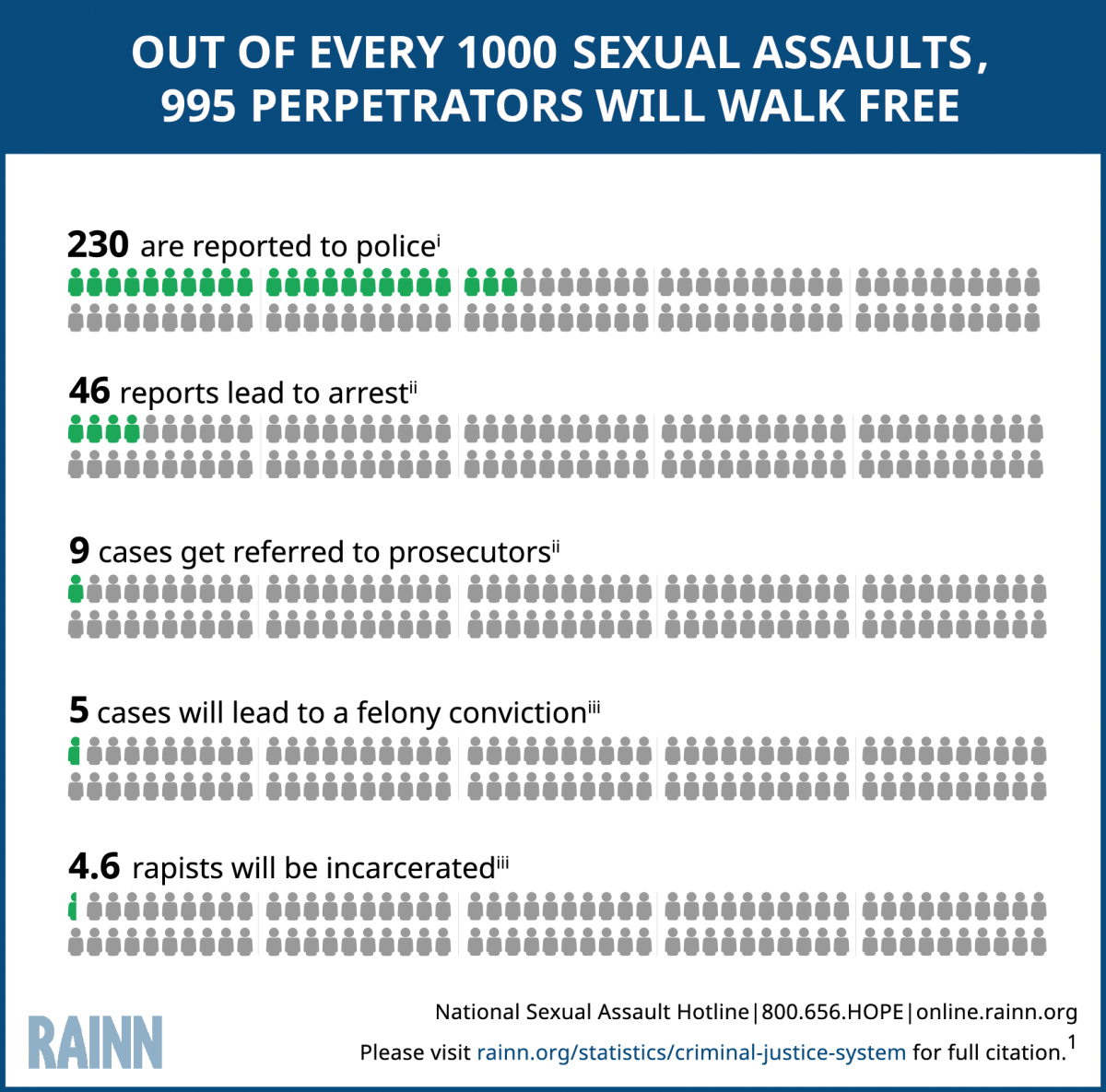Survivors cite the following reasons for not reporting a sexual assault:
• Fear of reprisal
• Personal matter
• Reported to a different official
• Not important enough to respondent
• Belief that the police would not do anything to help
• Belief that the police could not do anything to help
• Did not want to get offender in trouble with law
• Did not want family to know
• Did not want others to know
• Not enough proof
• Fear of the justice system
• Did not know how
• Feel the crime was not “serious enough”
• Fear of lack of evidence
• Unsure about perpetrator’s intent
D. Kilpatrick et al., “Drug-facilitated, Incapacitated, and Forcible Rape: A National Study,” 2007; U.S. Bureau of Justice Statistics, M. Planty and L. Langton, “Female Victims of Sexual Violence, 1994-2010,” 2013; Wolitzky-Taylor et al, “Is Reporting of Rape on the Rise? A Comparison of Women with Reported Versus Unreported Rape Experiences in the National Women’s Study-Replication”, 2010
Due partially to low reporting rates, only 9 percent of all rapists get prosecuted. Only 5 percent of cases lead to a felony conviction. Only 3 percent of rapists will spend a day in prison. The other 97 percent walk free.
Probability Statistics Calculated By the Rape Abuse and Incest National Network, “Reporting Rates,” 2013(from here: https://ocrsm.umd.edu/files/Why-Is-Sexual-Assault-Under-Reported.pdf)
Also some discussion as to why these victims didn't immediately go to the police with the situation. Statistics like below are why:

Consider the fact that many of the consent violations were in a BDSM setting, or had started in some consensual way, or were not rape but a consent violation regardless. What could the police have done? How would a victim be able to explain to the police that they were in subspace, once a scene had started consensually, and were unable to further consent to some new, not discussed, situation? That's still a consent violation, but I believe it is highly unlikely that law enforcement would see it as such.
No comments:
Post a Comment